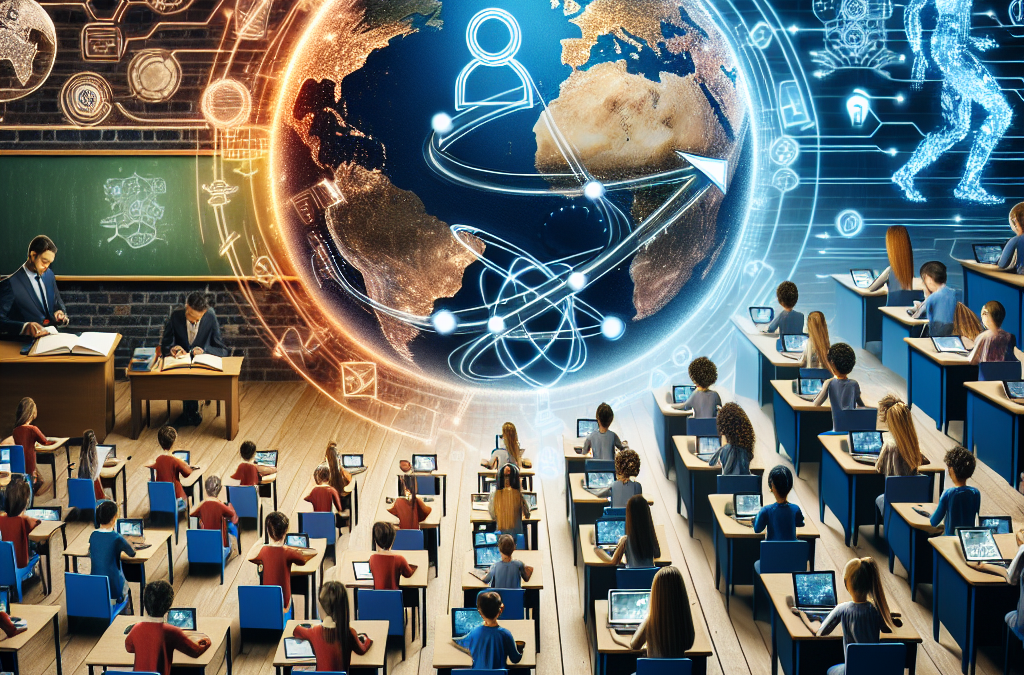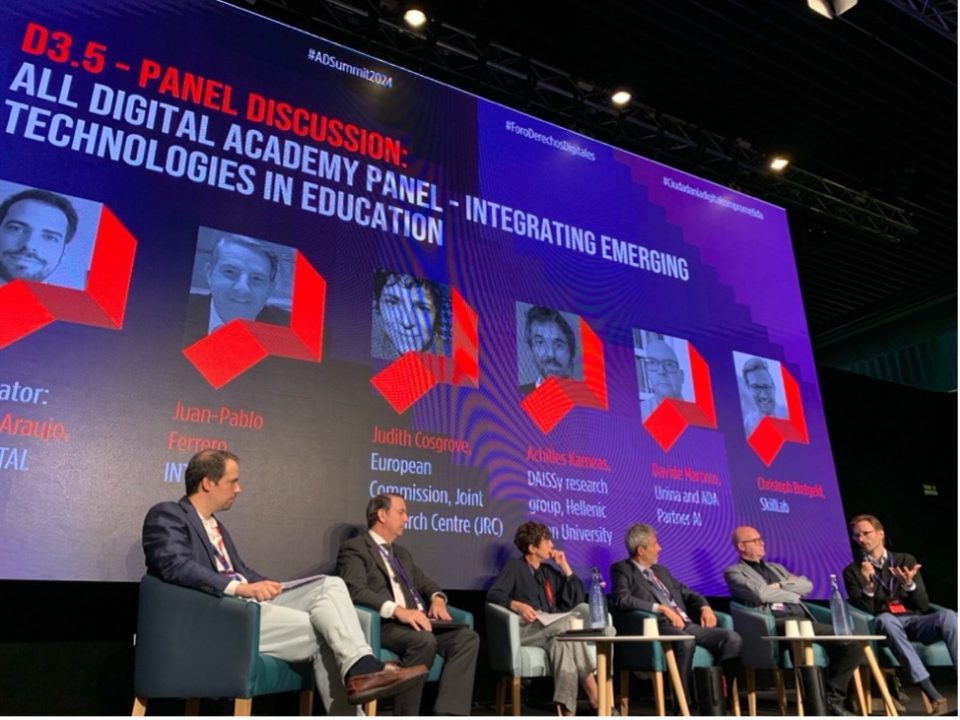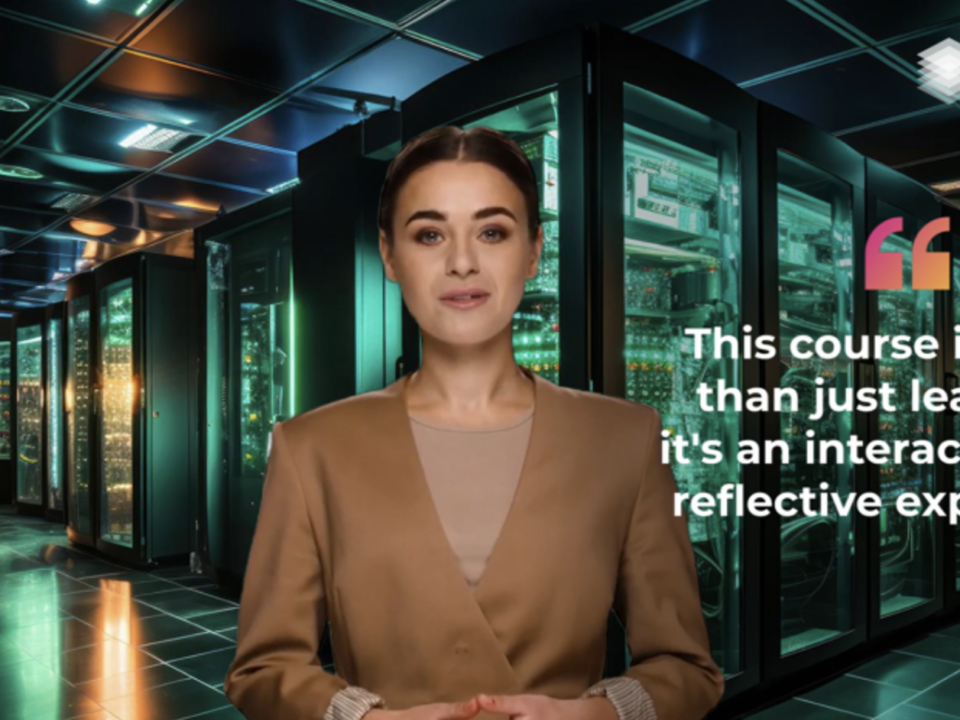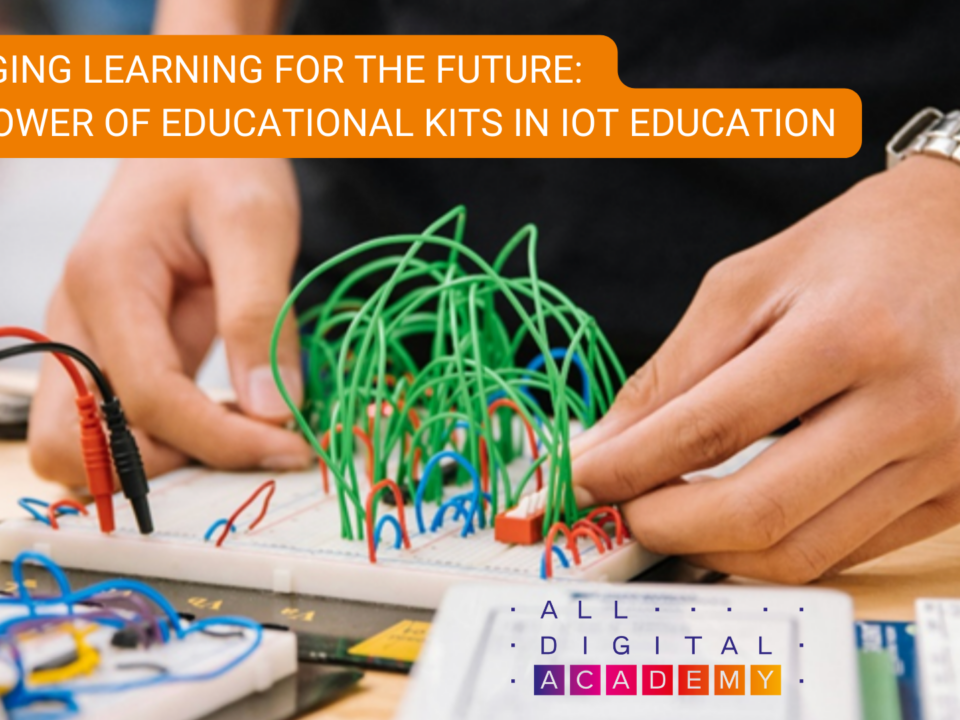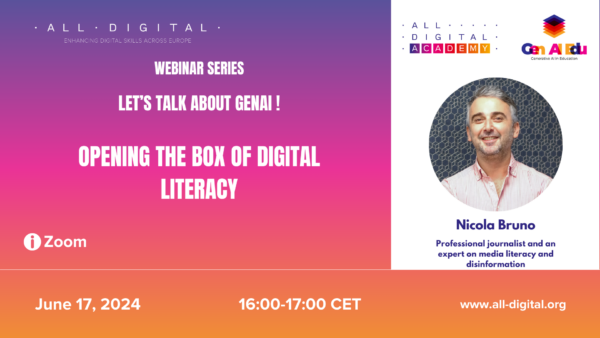
“Let’s talk about GenAI!” with Nicola Bruno (Rewatch)
May 8, 2024
ADA Webinar: Let’s start with Arduino IoT Cloud
June 19, 2024
Artificial intelligence (AI) is simply the ability of a machine to perform tasks associated with human intelligence. AI is a growing field with immense potential to change our world. It is a versatile technology that can be used to assist or replace humans in performing a wide range of functions. Therefore, understanding this technological advance is essential to grasp its impact on our daily lives.
Why everyone should know how AI works
We are inching closer to an AI-driven world. As such, technological literacy is becoming increasingly important, and understanding the basic concepts of AI, such as machine learning, neural networks, and algorithms, will enable individuals to critically evaluate technology-driven solutions, distinguish credible information from misinformation, and meaningfully engage in discussions about the societal implications of AI.
For example, one of the concerns around AI is deep fakes – an image, video or audio recording that has been convincingly altered and manipulated to make someone appear to have done or said something that they did not actually do or say. While this technique first came to prominence in 2017, it is becoming easier to create these media, and with a better quality. Deepfakes can spread misinformation by making famous people (e.g. politicians) appear to say something that is not true. But celebrities are not the only targets of deepfakes: recently, there have been reports of deepfakes being used to clone the voice of relatives to scam people. Understanding how this technology works can help you spot these deep fakes and raise awareness.
AI-driven technologies often rely on large amounts of data to make predictions and recommendations. Understanding artificial intelligence equips individuals with the knowledge to make informed decisions about privacy, consent, and security. It enables consumers to assess the trade-offs between convenience and privacy when interacting with AI-powered services and devices. By understanding AI, individuals can participate in discussions about regulatory frameworks, ethical guidelines, and the responsible development and deployment of AI technologies.
Why adult educators should learn more about AI
Learning about AI enhances educators’ professional development and keeps them abreast of the latest trends and developments in education and technology. By increasing their knowledge of AI, educators can remain competitive in their field: for example, AI can handle administrative tasks such as scoring multiple-choice and fill-in-the-blank tests; this automation frees up educators’ time to focus on more meaningful interactions with students. In addition, AI can be used to create personalised learning experiences that identify students’ weaknesses, adapt to individual needs, and provide additional support. Finally, AI tools can help adult educators fine-tune course content by designing effective lessons: through learner feedback and data analysis AI can identify trends, patterns, and areas of difficulty within course content, allowing educators to make informed decisions about curriculum design, teaching strategies and resource allocation. It can also recommend supplementary materials, resources and activities based on learners’ interests, performance and learning goals, enriching the learning experience and increasing engagement and motivation.
Adult learners are entering or re-entering the workforce in an era where AI is increasingly prevalent. Understanding AI allows educators to tailor their teaching to the evolving needs and skill requirements of their learners, ensuring relevance and applicability in the workplace. For example, educators can offer courses, workshops or seminars that educate adult learners about AI, its impact on different industries and the skills needed in AI-driven workplaces. In fact, adult educators can design curricula and training programmes that focus on developing skills relevant to AI-driven jobs. These may include technical skills such as data analysis, programming, and machine learning, as well as soft skills such as critical thinking, problem solving and adaptability. Adult educators can also promote a culture of lifelong learning among adult learners by emphasising the importance of continuously updating skills and staying informed about technological advances, and by providing resources and support for self-directed learning, such as MOOCs, OERs, tutorials, and professional development opportunities.
What is up next?
While it is impossible to predict what will happen next in AI, there are several trends that are shaping artificial intelligence. First, state-of-the-art AI algorithms are multimodal, meaning that they can process not only text (both input and output), but also images and video. These models are also becoming accessible to non-technical users, and there is likely to be a surge in people tinkering with a million little AI models to create customised solutions for different domains. While Generative AI (GenAI) models are becoming increasingly popular, other types of AI are being developed and used in a wide range of fields, such as robotics and automation (robots that perform complex tasks in different environments), climate change and sustainability, and healthcare. For example, AI is being used in drug discovery: although still in the early stages of research, the AI revolution in drug discovery is gaining momentum and scientists are using AI to speed up the identification of potential drug candidates. While the first fully AI-designed drugs are still a few years away, the impact on pharmaceutical research is undeniable.
While these trends are just beginning, AI’s journey is dynamic and its impact will continue to evolve, shaping our world in ways we can’t yet fully imagine.

